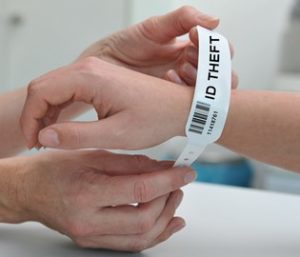National nonprofit American Consumer Credit Counseling offers consumers a how to guide on recovering from identity theft.
Boston, MA – December 30, 2016

“Although there has not been a substantial increase over the past year, identity theft is still a major concern among American consumers,” said Steve Trumble, President and CEO of American Consumer Credit Counseling, which is based in Newton, MA. “If consumers fall victim to identity theft, it is important that they are aware of the necessary steps it takes to recover and secure their finances again.”
According to the 2015 Javelin Study, the number of fraud victims hit 13.1 million, increasing from 12.7 million in 2014. The total fraud amount fell slightly to $15 billion compared to $16 billion in 2014. Although 2015 had the second highest number of victims, the amount stolen was the lowest in the last six years. Over the past six years a total of $112 billion has been stolen, which is equivalent to $35,600 per minute.
American Consumer Credit Counseling offers consumers a guide on how to recover from identify theft.
- Contact credit reporting agencies – Be sure to contact Equifax, Experian and TransUnion and ask to place an identity theft or fraud alert on all reports.
- Contact banks and creditors – Consumers are able to report stolen/missing credit cards and any fraudulent activity on statements. Accounts that have been tampered with can be closed or frozen.
- Contact the Federal Trade Commission – By filing a complaint with the FTC, consumers will receive a document verifying that they are a victim. Be sure to fill out the Identity Theft Affidavit.
- Contact the local police department – File a report with the local police. A consumer’s identity should be treated like any other stolen property. Document and report the theft to begin the investigation. Get a copy of the report as evidence for re-securing identity and removing fraudulent charges.
ACCC is a 501(c)3 organization that provides free credit counseling, bankruptcy counseling, and housing counseling to consumers nationwide in need of financial literacy education and money management. For more information, contact ACCC:
- For credit counseling, call 800-769-3571
- For bankruptcy counseling, call 866-826-6924
- For housing counseling, call 866-826-7180
- Or visit us online at ConsumerCredit.com
About American Consumer Credit Counseling
American Consumer Credit Counseling (ACCC) is a nonprofit credit counseling 501(c)(3) organization dedicated to empowering consumers to achieve financial management through credit counseling, debt management, bankruptcy counseling, housing counseling, student loan counseling and financial education concerning debt solutions. In order to help consumers reach their goal of debt relief, ACCC provides a range of free consumer personal finance resources on a variety of topics including budgeting, credit and debt management, student loan assistance, youth and money, homeownership, identity theft, senior living and retirement. Consumers can use ACCC’s worksheets, videos, calculators, and blog articles to make the best possible decisions regarding their financial future. ACCC holds an A+ rating with the Better Business Bureau and is a member of the National Foundation for Credit Counseling® (NFCC®). For more information or to access free financial education resources, log on to ConsumerCredit.com or visit https://www.consumercredit.com/debt-resources-tools/
